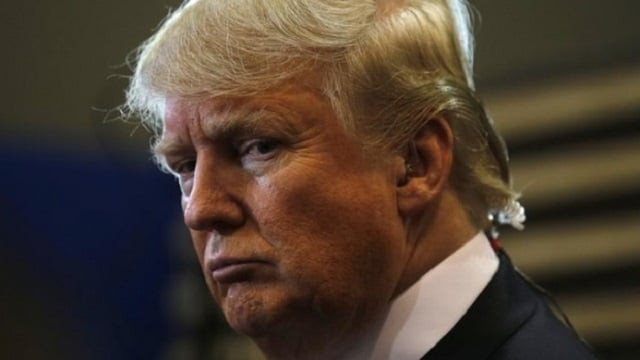Trump approves official travel to Taiwan
White House says 'Taiwan Travel Act' encourages visits between officials of the Washington and Taipei at all levels

Donald Trump PHOTO: REUTERS
The White House said Trump had signed the "Taiwan Travel Act," which "encourages visits between officials of the United States and Taiwan at all levels."
US representatives can already travel to democratic Taiwan and Taiwanese officials occasionally visit the White House, but meetings are usually low profile to avoid offending China.
Trump administration approves tougher visa vetting, including social media checks
Washington cut formal diplomatic ties with Taiwan in 1979 in favour of Beijing. But it maintains trade relations with the island and sells it weapons, angering China.
China sees Taiwan as a renegade province and has long stated its desire for reunification.
The new law describes Taiwan as "a beacon of democracy" in Asia, and states that "Taiwan's democratic achievements inspire many countries and people in the region."
Senator Jim Inhofe welcomed the move, saying high-level meetings "remain extremely valuable, especially as China continues their unprecedented reclamation in the South China Sea."
US Senate passes bill promoting ties with Taiwan
He described the legislation as "an important tool as we continue to ensure Taiwan has the ability to defend itself and remains a committed US partner in the region."
Trump's signature, announced late on Friday — when the White House usually tries to bury news — comes amid increasing tensions between the mainland and the self-ruled island.
Beijing has cut off official communications with Taipei because President Tsai Ing-wen refuses to acknowledge the democratic island as part of "one China".



















COMMENTS
Comments are moderated and generally will be posted if they are on-topic and not abusive.
For more information, please see our Comments FAQ